Install this application on your home screen for quick and easy access when you’re on the go.
Just tap then “Add to Home Screen”

The ECPR's Lifetime Achievement Award is presented on a biennial basis to a scholar who has made an outstanding contribution to European political science.
It carries with it a fund of £4,300.
Nominations open: Monday 17 November 2025.
Deadline for nominations: Friday 9 January 2026.
To nominate, please use the Nomination Form which will display at the top of this page during the nomination period.
The prize is open to scholars in all fields of political science, and candidates need not be affiliated with a Member institution.
Nominations must include, as 2 separate PDF files:
We strive to define outstanding contributions as inclusively as possible, and welcome nominations of candidates from non-traditional backgrounds.
Self-nominations are not accepted.
Members of the ECPR Executive Committee, ECPR Director, or Editors of any ECPR books, journals or blog are not eligible for this prize. However, we do not wish to penalise these individuals for their generous work within our organisation. Therefore, members of ECPR senior staff (EC, Director) are eligible to be nominated for prizes after their term has ended, and after a further three-year buffer period. Editors, meanwhile, are eligible to be nominated after their term has ended and after a one-year buffer period.
If a nominator attempts to nominate an excluded person, they will be informed of this policy by Harbour House staff, as well as the year in which the person will be eligible, if applicable.
The winner will be announced in Summer 2026.
We are delighted to announce that the biennial ECPR Lifetime Achievement Award in 2024 was presented to jointly awarded to two exceptional scholars, each of whom has made a remarkable impact on our field as educators, mentors, and leaders: Myra Marx Ferree of the University of Wisconsin-Madison, and Richard S. Katz, from Johns Hopkins University. Join us in celebrating their achievements by watching our short video featuring the winners, along with the jury chair David Farrell, a representative of Myra’s nominator, Silke Roth, and one of Richard’s nominators, Reuven Y. Hazan.

Myra Marx Ferree retired in 2019 from the University of Wisconsin-Madison where she was the Alice H. Cook Professor of Sociology and a member of the Women’s and Gender Studies Department. She currently serves as a seminar co-chair for the Minda De Gunzburg Center for European Studies at Harvard University. A 1976 graduate of Harvard’s PhD programme in social relations, she was awarded the 2024 Centennial Medal of this Graduate School. Her recent work focuses on the concept of demographic politics and the confluence of anti-immigration and anti-gender movements in Germany as well as more comparatively across both.
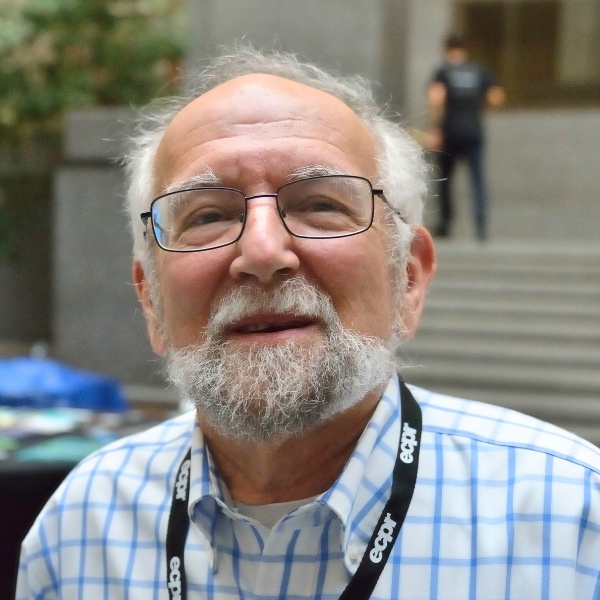
Richard S. Katz is Emeritus Professor of Political Science at Johns Hopkins University in Baltimore, where he served as graduate director (1985–1995 and 2003–2009) and department chair (2009–2015). Within ECPR, he was convenor of the Standing Group on Political Parties (1992–99) and a member of the Executive Committee (Treasurer, 2012–18; Vice Chair, 2015–18). His work has focused primarily on political parties, elections, and democratic theory in advanced industrial states. He was co-editor of the European Journal of Political Research and the EJPR Political Data Yearbook.
We are delighted to announce that our 2022 Lifetime Achievement Award has been bestowed jointly upon Beate Kohler of the University of Mannheim and Jean Blondel of the University of Siena, each of whom has also had an incredible impact on our discipline – as teachers, as mentors, and as leaders. To celebrate their careers, we invited each of them, their nominators, and a selection of guests to our headquarters at Harbour House for a presentation ceremony. These have been recorded to share with our community as two fascinating podcasts that delve into their lives, careers, and the development of the discipline through the eyes of those best placed to discuss it.
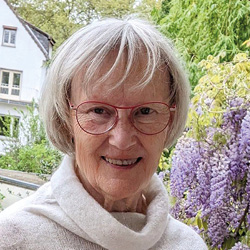
Beate Kohler started her academic career as Director of the Institute for European Politics (Bonn 1969-73). Professorships followed at Darmstadt University (1972-1990), at Mannheim University (1990-2007) and postretirement a Distinguished Professorship at the University of Bremen (2008-2012). She has been a Visiting Professor at universities and academic research institutes in many places in Europe and in China. Apart from myriad research projects, she initiated and run interdisciplinary and international research networks, always aiming to involve junior scientists and give them visibility by inviting them as co-authors. According to Google Scholar, her work has been cited more than 13,600 times. Her most recent book Verbände mit Zukunft? (Springer, 2022) explores the organisational adaptation of business associations to changing context conditions. Beate also served the advancement of political science by taking leading positions in academic associations. Among others she was Chairwoman of the German Political Science Association (DVPW) and in that capacity involved in the reconstruction of the social sciences in the former GDR. Also, with the support of the EU, she contributed to the establishment of European Studies Centres in China and the development of a Chinese Interdisciplinary European Studies Curriculum.
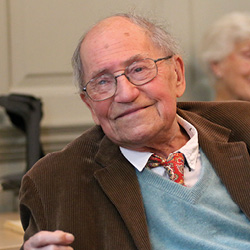
Jean Blondel graduated from the Institute d'Etudes Politiques of Paris in 1953 and from St Antony's College (Oxford) where he stayed from 1953 to 1955. He was a lecturer at Keele University from 1958 to 1963, went to Yale as an ACLS fellow in 1963-4 moved to the University of Essex in 1964, where he founded the Department of Government. Having left Essex in 1984, he was appointed scholar of the Russell Sage Foundation in New York in 1984 before becoming professor of political science at the European University Institute in Florence from 1985 to 1994. Beside these more regular affiliations he has taught in many universities around the world, from Leuphana University of Luneburg to the University of Seoul. Jean played a pivotal role in the founding of ECPR and served as its Director for the first ten years of its existence. His publication profile stretches back so far that a complete list is unavailable, but it numbers at least 29 books. In 2004 he was awarded the Johan Skytte Prize for Lifetime Achievement in political science. In 2000 he was also awarded a Lifetime Achievement Award from the British Political Studies Association.
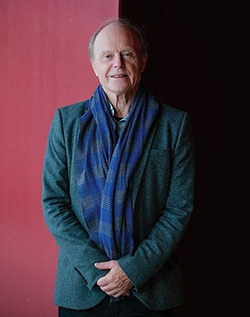
We are delighted to announce that the biennial ECPR Lifetime Achievement Award in 2020 was presented to 'a leader, a teacher and a true model for political theorists': David Miller, Senior Research Fellow at Nuffield College, Oxford. David’s association with Nuffield College stretches back more than four decades, but recently he helped found the Masters of Public Policy at the Blavatnik School of Government, a one-year programme designed to introduce public sector practitioners from around the world to the theory and practice of public policy. During his long career, he has supervised 49 PhD students, and been a Visiting Professor at universities across the world. He has served as an associate editor of the highly influential journal Ethics; International Journal of Social, Political, and Legal Philosophy and since 1995 has been co-editor of OUP's flagship Oxford Political Theory series. David Miller has written twelve books, edited nine, and published more than 200 journal papers and book chapters. According to Google Scholar, his work has been cited more than 22,000 times. Learning of his prestigious accolade, David told us: 'I am delighted and very honoured to be given this Lifetime Achievement Award. As a young academic, taking part in the ECPR’s Joint Sessions was a memorable and formative experience for me, and I have held the ECPR in the highest regard throughout my career. I look forward to attending future events once the current pandemic has passed.' The nominating committee, led by Richard Bellamy, University College London, and Avner de Shalit, Hebrew University of Jerusalem, argued in their submission that David Miller's research and teaching has been ‘…an inspiration, a model of reasoning and of researching. Miller makes a coherent and consistent attempt to tackle everyday issues which trouble contemporary citizens, parliaments and governments. In a clear and engaging style, which is nevertheless very analytical and rigorous, and in a very brave fashion, he puts forward rich political theory, which has inspired generations of students, researchers and scholars.' On hearing of David's win, Richard Bellamy issued a statement on behalf of his committee: 'We nominated David Miller because he is not only one of the most prominent political philosophers in the world today, but also someone whose approach to the field, which links normative theory to empirical research, exemplifies why political philosophy is a central part of political science. His work has addressed such pressing issues as migration, nationality, social justice and citizenship in a timely, original and practical way. Miller’s work has influenced generations of political theorists, many of whom he supervised or mentored during his long career – ourselves included.' Our heartfelt congratulations to David Miller on being honoured with this most distinguished of ECPR awards.
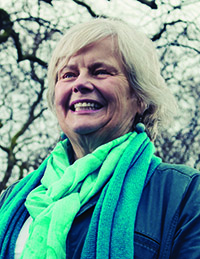
The 2017 Lifetime Achievement Award was presented to Joni Lovenduski, Anniversary Professor of Politics at Birkbeck, University of London. Joni has been a visiting scholar at universities across Europe and the United States. She has won the Isaiah Berlin Prize of the UK PSA, and is a Fellow of the British Academy. A former vice chair of the ECPR’s Executive Committee, Joni Lovenduski has also served on the ESRC Research Grants Committee and the Research Council of European University Institute. She has provided advice on enhancing the role of women in decision-making to the European Commission and the Council of Europe, and founded what is now the ECPR Standing Group on Gender and Politics. In 2009, she was the co-recipient, with Joyce Outshoorn, of that Group's Career Achievement Award. Joni has played a key role in defining and developing the field of gender and politics, through many important publications, but also by founding and strengthening organisations, and by representing the field in the wider political and public community. Spanning more than thirty years, her pioneering research on the political representation of women, the selection of female candidates for elected office and the roles of women in political parties, has contributed new empirical data and advanced new conceptual frameworks, challenging the gender-blind assumptions of contemporary political science. Her research has also reached beyond the academy, influencing the recruitment strategies of political parties and highlighting the role of, and challenges facing, women in politics. Joni Lovenduski has become one of the leading figureheads of gender and politics study in Europe and is a source of inspiration, advice and support to many younger female scholars.

The recipient of the 2015 Lifetime Achievement Award was R.A.W. (Rod) Rhodes, Professor of Government (Research) at the University of Southampton and at Griffith University, and Emeritus Professor of Politics at the University of Newcastle. The Jury was impressed with Professor Rhodes' 'exceptional record in the many areas of the profession: from teaching and publishing to advising and disseminating,' and went on to say that 'Few have taught in so many universities, visited at least as many research institutions, collaborated in so many research projects on both sides of the globe and produced so many veritably "paradigm-shifting" authored and edited volumes. The impact of [his] work on the discipline of political science is easily "measured" by the by-now-conventional bibliographic indicators and, more impressionistically but equally clearly, by the impact on the work of many of us.' Professor Rhodes is life Vice-President and former Chair and President of the Political Studies Association of the United Kingdom; a Fellow of the Academy of the Social Sciences in Australia; and an Academician of the Academy of Social Sciences (UK). He has also been a Fellow of the Royal Society of Arts, editor of Public Administration from 1986 to 2011, and Treasurer of the Australian Political Studies Association, 1994–2011.
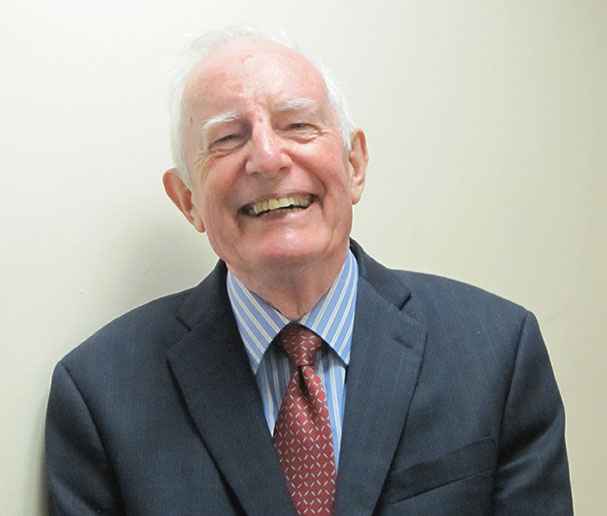
The 2013 Prize was awarded to Ian Budge of the University of Essex, who has enjoyed an outstanding political science career. Over the past four decades, Professor Budge has achieved significant qualitative and quantitative research impact, has published a number of leading research monographs and was a founding member of the Manifesto Research Group. The Group became the source of major monographs and an award-winning dataset, influencing the work of a wide range of political science scholars. Professor Budge played an important role in strengthening the field of European political science through his involvement in the ECPR, in particular as Executive Director between 1979 and 1983, and through his important contribution to the training of young political scientists, as Director of the Summer Schools in Social Science Data Analysis. Throughout his teaching career, Professor Budge proved himself deeply committed to the development of comparative politics, as Chair at the European University Institute in Florence, and at his home institution, the University of Essex, where he has been Chair of Department, Director of Graduate Studies and principal advisor to PhD students. The jury for the Lifetime Achievement Award concluded that Professor Budge has made an exceptional contribution to European political science over several decades through international research projects, monographs and scholarly production, and institutional service to the development and growth of the discipline.
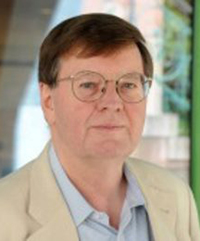
The 2011 Lifetime achievement award went to Hans-Dieter Klingemann, Freie Universität Berlin. During his career, Hans-Dieter has been Director of Research on Institutions and Social Change at the Social Science Research Centre Berlin (WZB); a Visiting Scholar in Paris, Canberra, California and Michigan; a member of various distinguished scientific boards and committees; Vice President of the Council of the Institute for Strengthening Democracy in Bosnia, Sarajevo; member of the International Advisory Board of the Encyclopaedia of Democratic Thought; and a member of the TMR Network 'Representation in Europe'. He was also President of the European Political Science Network (epsNet) and a member of the Executive Committee of the ECPR. Overall, the Jury concluded that Professor Klingemann has made an outstanding contribution to European Political Science over several decades through his international research projects, his activities in international research organisations and his own scholarly production, and it drew attention in particular to Professor Klingemann’s commitment and action to the development and integration of political science in central and eastern Europe.

Gerhard Lehmbruch's research focused on institutions, political regulation and comparative politics, including 'negotiated democracy' and structural incongruence between federal state polities and party competition, Strukturbruchthese. In 2003, the German Political Science Association honoured him with the Theodor-Eschenburg-Prize for his lifetime achievements.
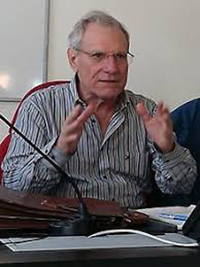
Philippe Schmitter studied at the Graduate Institute for International Studies of the University of Geneva and subsequently took his doctorate at the University of California at Berkeley. In 1967 he was appointed as assistant professor by the Department of Political Science of the University of Chicago, where he later became full professor. Between 1986 and 1996 he taught at the European University Institute (1982–86), then moved to Stanford (1986–96). He taught again at the EUI until 2004 and was thereafter nominated Professorial Fellow of the Department of Social and Political Sciences of that Institute. Philippe has published numerous books and articles on comparative politics, on regional integration in Western Europe and Latin America, on the transition from authoritarian rule in Southern Europe and Latin America, and on the intermediation of class, sectoral and professional interests.
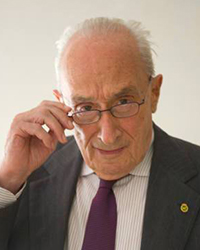
The inaugural prize was awarded to Giovanni Sartori (1924–2017) on the grounds of his substantive and organisational contribution to European Political Science over a long career. Particular mention was made of the application of his theory of parties to the study of European party systems and his founding of the Rivista Italiana di Scienza Politica. Sartori graduated in Political and Social Sciences from the University of Florence in 1946 where, after qualifying for teaching History of Modern Philosophy and Doctrine of the State, he became lecturer of Modern Philosophy (1950–56) and Political Science (1956–63), and professor of Sociology (1963–66). After becoming full professor of Political Science and teaching at Florence University from 1966 to 1976 he taught also at the European University Institute (1974–76) and later became professor of Political Science at Stanford University (1976–79). Latterly, Professor Sartori was Albert Schweitzer Professor Emeritus in the Humanities at Columbia University, and Professor Emeritus at the University of Florence. After having given a vital contribution to the development of the Rassegna Italiana di Sociologia, Professor Sartori was the founder and longtime director of the Rivista Italiana di Scienza Politica (1971–2003).